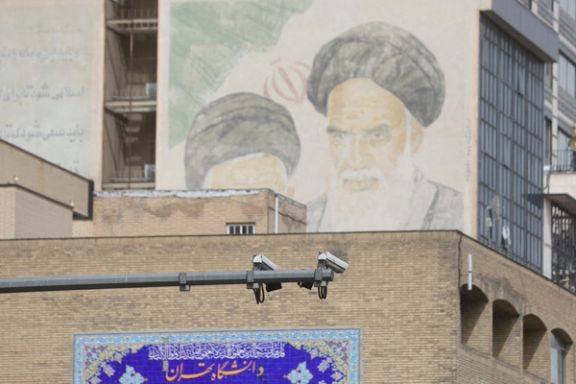Iran's Proposed Hijab Bill Tightens Surveillance Measures

Iran has set forth stringent measures under the proposed Hijab and Chastity Bill to enforce mandatory hijab laws, utilizing surveillance cameras as a key tool in monitoring compliance.

Iran has set forth stringent measures under the proposed Hijab and Chastity Bill to enforce mandatory hijab laws, utilizing surveillance cameras as a key tool in monitoring compliance.
Amir Hossein Bankipour, a member of the Supreme Council of Cultural Revolution and the Iranian parliament, revealed that under the Bill, individuals failing to adhere to hijab regulations will face identification by using cameras.
In cases where women refuse to be photographed, an immediate arrest is mandated, with individuals handed over to authorities for identification.
Bankipour detailed the Bill's provisions in an interview with Fars News Agency, affiliated with Iran’s Revolutionary Guard Corps (IRGC), on Saturday. He emphasized the requirement for all including the private sector to provide access to their CCTV cameras to Iran’s Law Enforcement Command (FARAJA) forces for hijab enforcement.
“We mandate that all entities, including the private sector to provide their cameras to FARAJA. All cameras must be connected to FARAJA,” Bankipour stated.
Bankipour added that once photographed, individuals' identities will be confirmed through "trusted observers," and fines will be issued via text messages.
Addressing scenarios where a person's face might be obscured by a mask or technical systems are offline, Bankipour emphasized:
“In fact, we added an article requiring the use of identification or documents in situations where it is not possible to identify a person. The individual must be identified directly.”
Bankipour's statement adds to growing concerns regarding undocumented women who defy mandatory hijab laws, as they would face an elevated risk of being arrested.
Furthermore, Bankipour outlined punitive measures for hijab non-compliance, including financial fines, social exclusion, exile, closure of social media pages, passport confiscation for up to two years, and arrest.
Regarding the Bill currently under review by the Guardian Council, Bankipour expressed confidence in its approval. He cited its alignment with the country's legislative system and potential implications for Iran's economic stability, referencing a letter from Sadegh Amoli Larijani to Ayatollah Ahmad Jannati, Secretary of the Guardian Council.
Although as part of Iran’s Nour Plan, initiated in April, Iranian authorities have been increasingly cracking down on women defying hijab laws, the apparatus for enabling the use of surveillance technology has been in the works for some time. In June last year, Ahmad-Reza Radan, Iran's police chief, announced that President Ebrahim Raisi had allocated funds to install additional cameras to combat defiance against hijab rules.
The use of CCTV to enforce hijab regulations has previously raised concerns about women's privacy and the potential exploitation of surveillance for monetary purposes through fines. Rights groups such as Article 19 have warned against the use of facial recognition software and AI-assisted technology to enforce mandatory hijab laws.
More recent examples of such invasive technology including the use of drones to enforce hijab laws at Tehran’s Book Fair this month also sparked outrage and concern.
Articles of the Proposed Hijab and Chastity Bill on Use of CCTV Surveillance
Although not yet approved, below are some of the Articles that will allow Iran to freely use invasive surveillance technology against women who defy hijab laws:
Article 30 states that to fulfill the law, the police command must:
“Create and strengthen intelligent systems for identifying perpetrators of illegal behavior using tools such as fixed and mobile cameras.”
Article 61 requires the private sector including “non-governmental banks”, “passenger transport companies”, “business owners”, “stores”, and “officials of complexes” to “upload their camera footage and provide them to the police command of the Islamic Republic of Iran (FARAJA) in order to identify those who violate this [hijab] law, and further requires them to keep the footage for at least twenty days.
The article additionally mentions that failure to comply with this ruling could lead to a suspension from government and public services ranging from six months to five years. Furthermore, business owners and professionals might face a monetary penalty equivalent to two to six months' worth of profits from their business activities.
Article 36 allows “certified individuals”, including all officers trained by FARAJA, to report instances of hijab law non-compliance or “inappropriate clothing” by sending photos to the dedicated system established by FARAJA.